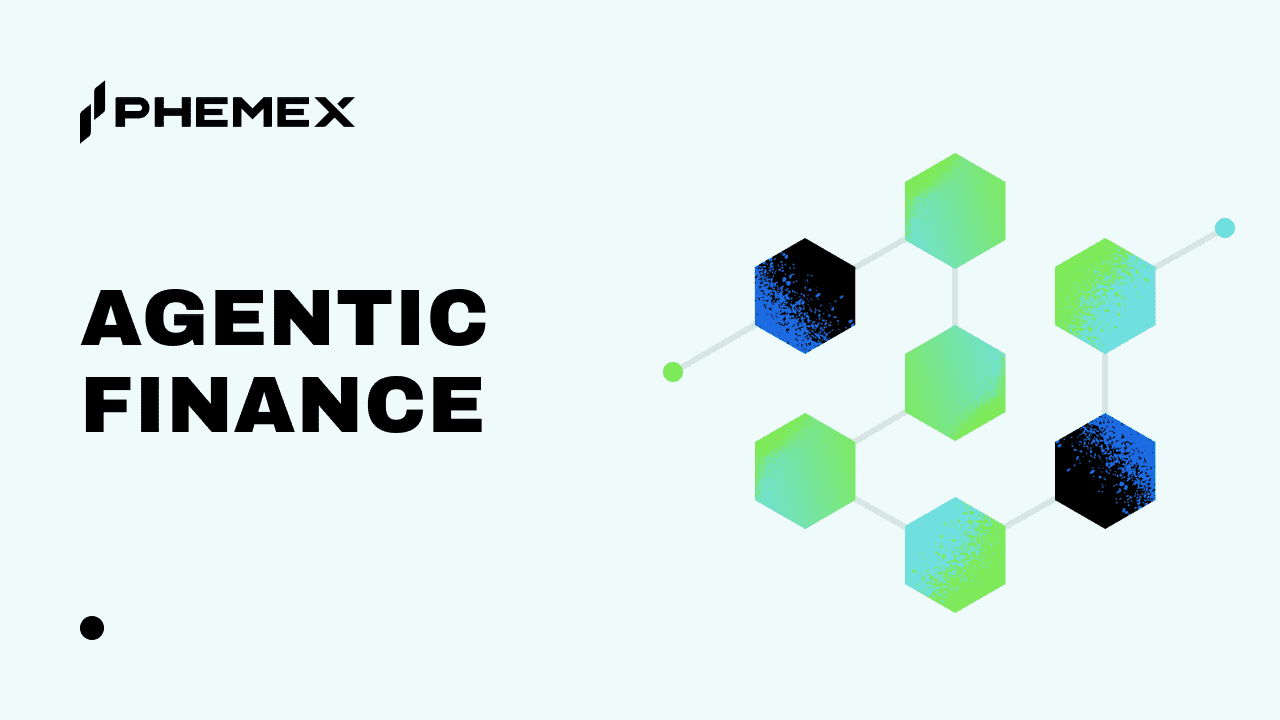The internet is generally heralded as one of the most important inventions in human history, and is arguably the most significant innovation of the modern age. By connecting people from around the world, the world wide web has unleashed a torrent of global impact and is responsible for creating a standalone digital culture that deviates from yet also permeates into the physical realm. However, the internet is not just a static entity and is instead constantly evolving. With greater adoption and additional features, how the internet and its users develop may well determine the course of technological and even social progress for decades to come. This is why many are seeing cryptocurrency, Web3, and artificial intelligence as major factors that could substantially affect how the internet is used in the future. This piece examines how the blockchain has unlocked potential for the internet to be more transparent and democratized through cryptocurrencies and Web3, while artificial intelligence will make on-chain verification more necessary than ever before.
Phemex has recently unveiled PhemexPulse, a new addition to its web3 ecosystem. This social trading platform is designed to enhance connectivity among cryptocurrency enthusiasts, allowing traders to engage, share insights, and even monetize their online interactions.

What is Web3 - The New Age of the Internet
Before delving into the concept of Web3, it's essential to grasp the evolution of Web1 and Web2. Web1 emerged as the initial iteration of the internet, gaining prominence during the 1990s and early 2000s. During this period, much of the internet infrastructure was built on "open protocols," enabling the exchange of information accessible to anyone, rather than being controlled by a single entity or organization. Initially, people primarily used the internet for tasks such as browsing web pages and engaging in online conversations with acquaintances or strangers. Over time, Web1 evolved as individuals and businesses increasingly utilized the internet for activities like e-commerce, academic pursuits, and scientific research.
The advent of Web2 occurred in the mid-2000s, ushering in a new era characterized by a wave of internet companies such as Facebook, Twitter (now known as X), and Wikipedia. These platforms empowered users to generate their own content, marking a significant shift in internet usage dynamics. However, there were underlying costs associated with these "emergent social software platforms" that many users were unaware of. These companies monetized user activity and data by selling them to advertisers while retaining control over proprietary decisions regarding functionality and governance.
In the era of Web2, authority over transactions, content, and data is consolidated within large tech corporations. But with the emergence of Web3, there is an anticipation of significant change. Advocates envision a Web3 era where users wield control over their own information, eliminating the need for the intermediaries prevalent in today's landscape. This shift has the potential to reshape how information is managed, how the internet is monetized, and even the operational dynamics of web-based corporations.

One notable contrast between the two eras lies in their approach to trust. In Web2, transactions—whether involving money or information—rely on mutual trust between two parties, often facilitated by a central entity. Conversely, Web3 does not necessitate users to place trust in each other. Instead, the technology is structured to ensure that a transaction is executed only when specific criteria are met and data are verified.
To illustrate a potential Web3 transaction scenario, consider the hypothetical case of someone who wants to purchase a ticket to a sporting event from the secondary market. Having previously fallen victim to ticket scams, the individual opts to utilize a Web3-enabled, blockchain-based ticket exchange service. These platforms assign each ticket a unique, immutable identity linked to a genuine seller, such as the ticket being minted as an NFT. Prior to making the purchase, the majority of network nodes validate the seller's credentials, confirming the authenticity of the ticket. Consequently, the individual can buy the ticket with full peace of mind, due to immutable on-chain verification.
Web3 Cryptocurrency Projects
DeXe Protocol (DEXE) - One guiding principle of Web3 is decentralization, so organizations that gain prominence in the future of the internet will likely be self-governing DAOs. As such, DAO structure and activity will be a critical component of Web3. The DeXe Protocol is an ambitious project that aims to manage assets and DAO governance that serves as both a DAO constructor and governance toolkit, comprising over 50 smart contracts. These smart contracts can be combined in various configurations to establish adaptable, efficient, and rewarding DAOs as well as a multitude of other products. Being open-source, these smart contracts offer limitless possibilities for implementation, limited only by the creativity of developers within the ecosystem.
DeXe is designed to operate seamlessly across Ethereum Virtual Machine (EVM) blockchains. As a DAO itself, DeXe operates under the guidance of core contributors and a diverse community passionate about DAO development, governance, and education. The protocol implements a meritocratic system of governance in which DAO voting power can be delegated to domain experts.

Bluzelle (BLZ) - The Bluzelle platform seeks to establish a groundbreaking paradigm for the decentralized internet, foreseeing that centralized infrastructures will lack the capacity to accommodate the burgeoning decentralized web under development. At the core of the Bluzelle ecosystem lies a decentralized layer, providing users with the ability to store and utilize data for decentralized applications (dApps) free from censorship and with unparalleled scalability.
In essence, Bluzelle operates as a peer-to-peer marketplace for database storage, linking users seeking storage rentals with those offering surplus storage capacity. The platform prioritizes maximum security and scalability to meet users' needs effectively. Participants who provide storage space are rewarded with BLZ, the network's native token (formerly known as BNT), for their unused storage resources. Meanwhile, users can access Bluzelle's database storage by paying a reasonable fee, ensuring equitable access to the platform's services.
Artificial Intelligence as Crypto Use Case Necessitating Web3
Initially, AI and blockchain may appear to be disparate domains, but their potential to work in tandem to reshape various industries are actually quite apparent. AI's capacity for rapid execution and access to vast information repositories holds significant implications for the cryptocurrency market, promising substantial changes in how crypto applications are developed and how crypto enthusiasts trade. One good example that illustrates the convergence of AI and blockchain is a project like SingularityNET - a comprehensive AI solution built on decentralized protocols. SingularityNET facilitates an automated marketplace enabling companies to buy and sell AI algorithms at scale, fostering the expansion of an open and decentralized AI market.
In the crypto space, AI is poised to make its most profound impact in the following key areas: trading and data processing, as well as product development innovation. Trading activities are poised to undergo a transformation, transitioning into a realm where neural networks trained on comprehensive datasets, including patterns, market trends, charts, and historical data, engage in competition. This is why top exchanges like Phemex have released multiple trading bots that allow their users to automate trading strategies and earn profit while they sleep without any emotional bias. In the future, such a trend is expected to completely transform the field of trading, because algorithmic trading tools are more democratized through AI. Furthermore, AI technologies are expected to streamline the coding and creation of boilerplate crypto products like DEXes and Liquidity pools, potentially supplanting traditional developers in the future.

The adaptability and learning capabilities of AI to respond to market dynamics and shifts is what sets it apart. The primary advantages of merging blockchain solutions with AI lie in the transparency and accessibility afforded by blockchain data, empowering AI systems to learn more effectively. Unlike conventional environments where information may be restricted, blockchain's openness ensures that AI can access a wealth of data, facilitating informed decision-making. Another synergistic example can be found in the healthcare sector. Blockchain stands poised to deliver secure, immutable patient records, while AI holds the potential to analyze this data to forecast disease patterns, enhance diagnostic accuracy, and tailor treatment plans to individual patients.
AI Cryptocurrency Projects
Phoenix (PHB) - Phoenix Global is a blockchain-based ecosystem that seeks to establish infrastructure for decentralized AI by empowering Web3 and privacy-enabled dApps. By integrating advanced artificial intelligence, the project is able to create a blockchain fit for the next generation of consumer apps with greater privacy, security, and interactivity. The AI-enabled applications that it supports can be found in cutting edge domains such as Web3 gaming, financial services, internet of things, healthcare, and supply chain.
IQ.wiki (IQ) - Dubbed as the blockchain encyclopedia, IQ.wiki is committed to shaping a smarter future by harnessing the potential of artificial intelligence and blockchain technology. By leveraging advanced AI capabilities, IQ.wiki streamlines operations such as article summarization, enhancing user experience and accessibility. For example, in August 2023 the project integrated GPT search functionality. The so-called “IQ GPT” has been trained on data from prominent crypto news platforms such as CoinGecko. Governance of its native IQ token is facilitated by BrainDAO, which oversees the management of BrainDAO's digital asset treasury alongside the IQ token ecosystem.

Conclusion
AI and crypto are both revolutionary new technologies, but they each have certain drawbacks in their present form. Cryptocurrency struggles with achieving mainstream accessibility and sophistication, while centralized control of AI by dominant tech corporations risks prioritizing the agendas of an elite minority. In this sense, by strategically merging these two innovations, they can each compensate for the other’s weakness and usher in a transformative evolution of the internet into true Web 3.0. One clear example of their complementary nature is how AI can create highly accurate deep fakes that eventually become so indistinguishable from the real thing that only the blockchain’s immutable transparency can act as a trusted verifier. Such integration holds the promise of safeguarding privacy while unlocking innovative use cases, ultimately fostering a new paradigm of decentralized internet that empowers individuals and fosters inclusivity.
Read More
- Rising Use of Artificial Intelligence in Trading
- Blockchain and AI: How They Perfectly Work Together
- What are AI Agents? The Potential Next Big Thing in Crypto
- AI Crypto Coins See Recent 20% Surge to Reach $1 Billion Volume
- What is Blockchain Technology: The Biggest Misconception About It
- Top Crypto Trends Heading into 2025
- What Are Decentralized Applications (dapps)?
- Crypto Exchange Security in 2024






